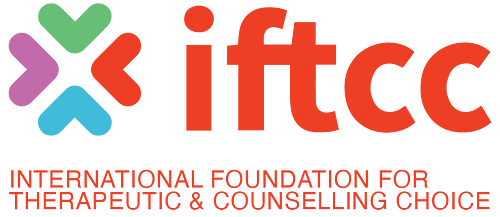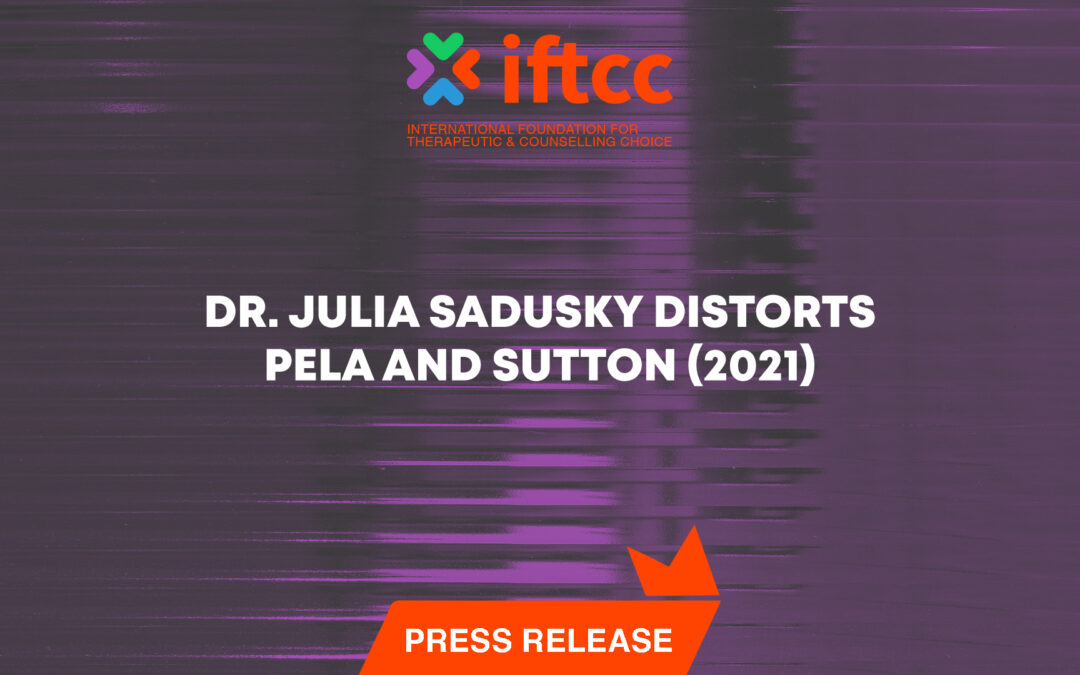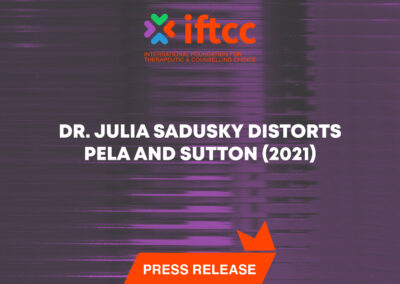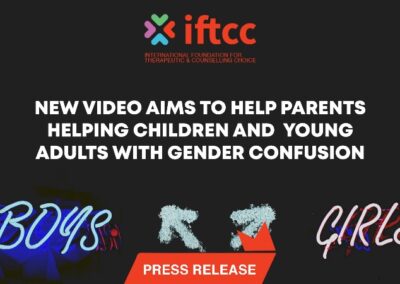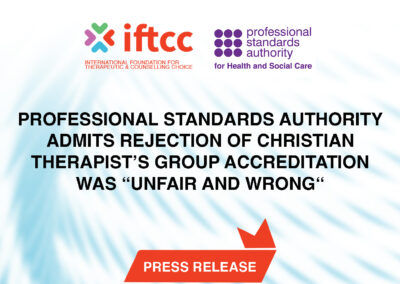“A Guideline for Adult Hormone Treatment Would be Scientifically Unfounded and Premature”
Dear Members of the Guideline Development Group,
On behalf of the IFTCC, thank you for the opportunity to submit comment on the WHO’s proposed gender-affirming care guideline for adults.
The WHO FAQ explains the proposed guideline is planned to cover hormone interventions but not surgeries for gender discordant adults.
It says, “The scope will cover adults only and not address the needs of children and adolescents, because, on review, the evidence base for children and adolescents is limited and variable.” (WHO, 2024) The evidence base for adults, however, is equally lacking.
Several population-based registry studies that included young adults or adults have unanimously concluded that medical gender interventions that include hormones do not improve mental health and may worsen it.
United States: A large, controlled, U.S. military registry study of 3,573 young people given a gender diagnosis and 6,603 gender congruent siblings for a comparison group found that among youths who were given a gender diagnosis and who, at a median age of 18, received cross sex hormones, use of psychiatric pharmaceuticals and psychotherapy visits increased. While 75% of youths with a gender diagnoses were on psychiatric pharmaceuticals during the study, 89% of those who were receiving gender pharmaceuticals were on psychiatric pharmaceuticals. Researchers said, “Findings indicated that mental healthcare visits were not significantly changed and psychotropic medication use rose following gender-affirming pharmaceutical treatment after adjusting for potential confounders. Results are not consistent with adult and adolescent self-report survey research indicating improvements in mental health symptoms following gender-affirming care.” (p. 1450) The researchers concerningly found, “The most pronounced increases in mental healthcare were for adjustment, anxiety, mood, personality, psychotic disorders, and suicidal ideation/attempted suicide.” (Abstract, pp. 1447-1448) After hormone treatment, mental health and suicidality worsened. (Hisle-Gorman et al., 2021)
United States: A related study using the same U.S. military registry data set followed 952 transgender identified “children and spouses of active duty, retired, and deceased military members”. It found that within 4 years of beginning gender drugs, 30% overall (26% of youths who started gender drugs before age 18 and 36% who started after age 18) discontinued taking the gender drugs, even though they continued to have and use military medical insurance for other concerns. (Roberts et al., 2022) Although they discontinued gender drugs for whatever reasons, their bodies and mental health had already been exposed to harm, potentially leaving them with permanent consequences.
Denmark: An entire national, controlled, registry study of everyone who received a gender diagnosis in a centralized specialty gender center over the first 21 years of this century (3,812) and matched controls (38,120) found that rates of severe psychiatric diagnoses remained elevated. There was a trend of a decrease in psychiatric disorders only as use of psychiatric medications increased through the duration of follow up. If gender interventions had treated psychiatric disorders, use of psychiatric medications would have decreased. The majority received hormone treatment (55%), and a minority received gender affirmative surgery (20%). (Glintborg et al., 2023)
Finland: A large (3,665 gender diagnosed individuals and 29,292 controls), 23 year longitudinal (average follow up close to 6 years and maximum 26 years), national registry study of people of all ages who contacted gender services in Finland found,“ Manifest psychiatric needs persist regardless of medical GR” [gender reassignment]. (Abstract) Of the 38% who received medical gender interventions, the most common medical intervention was cross sex hormones (37% hormones, 11% genital surgeries). Psychiatric disorders increased or were no different after gender medical interventions. Researchers spoke of their study and the U.S. Hisle-Gorman et al. (2021) study reported above, saying, “Their findings and ours do not suggest that medical GR interventions resolve psychiatric morbidity among people experiencing gender distress.” (Kaltiala et al., 2023, p. 6)
Sweden: A national registry study of 324 gender diagnosed adults (and 3240 controls) over 30 years found psychiatric disorders continued at a rate nearly 3 times higher than for matched peers from the general population, and the completed suicide rate was 19 times higher. Researchers said, “Notably, however, in this study the increased risk for psychiatric hospitalization persisted even after adjusting for psychiatric hospitalization prior to sex reassignment.” (Dhejne et al., 2011, p. 6, footnote citations omitted) Since all patients received both cross sex hormones and surgeries, separate outcomes for these treatments were not available. Also, this study did not have a comparison group of gender diagnosed adults who did not receive hormones or surgeries to tell us if outcomes would have been worse without these medical interventions. A subsequent registry study in Sweden did provide partial help.
Sweden: A registry study of all people in Sweden who had a gender diagnosis (2,679) in 2015 found no differences between those who received surgery (38%) and those who did not (62%) in mental health visits or psychiatric medication prescriptions for depression or anxiety or hospitalizations following serious 2 suicide attempts. It did not conduct the same kind of comparison for those who received or did not receive hormones. Adolescents could receive hormone treatments but not surgeries before age 18. The researchers re-analyzed and re-published their data in response to criticisms of their originally published version. (Branstrom & Pachankis, 2019; 2020a; 2020b)
The researchers of these several registry studies did not suggest that outcomes for mental health of adults or for mental health of adults who received cross sex hormones were any better than other outcomes for gender discordant individuals of other ages.
Affirmative treatment is biological treatment for what the affirmative approach views as a biological condition. That is, gender affirmative treatment is commonly founded on a viewpoint that discordant gender identity is biologically determined or inborn, hence who a person inherently and indelibly is. This viewpoint has never been scientifically substantiated, and there is not a professional consensus in support of it. A global consensus statement of endocrine societies says there is no consistent evidence that the brains of gender incongruent people are different from the brains of gender congruent people. It says no biological marker has been found for gender discordance, meaning nothing biological has been found for discordant gender identity that another person can find by looking at a person’s brain or conducting a biological test. It notes there is a hypothesis that prenatal hormones may lead to gender discordance, often considering research on women who have a disorder of sexual development known as congenital adrenal hyperplasia (CAH). The global consensus statement points out, however, that among women who have CAH, 95% identify as a woman. They are not usually gender discordant. Rather than taking a biologically determined view, the global consensus statement says, “The construct of gender identity itself and related theories of gender identity development recognize a higher degree of complexity hopefully better representing biopsychosocial reality than previously. (Lee et al., 2016, p. 168) The American Psychiatric Association’s Diagnostic and Statistical Manual, Fifth Edition, Text Revision, (2022) makes similar statements. It says, “Over all, current evidence is insufficient to label gender dysphoria without a DSD [disorder of sexual development] as a form of intersexuality limited to the central nervous system.”(APA, DSM-5-TR, 2022, p. 517) That is, gender discordance is not caused by having the brain of the opposite sex or a brain more like the opposite sex. Rather, “Biological factors are seen as contributing in interaction with psychological and social factors to gender development.” (p. 511) These medical societies say gender discordance emerges from a mixture of biological, psychological, and social influences.
In contrast to the inborn explanation for gender discordance, several studies have found internationally that psychiatric conditions commonly precede the onset of gender discordance and therefore may be causal for it. (Becerra-Culqui et al., 2018; Kaltiala et al., 2015; Bechard et al., 2017; Kozlowska, McClure et al., 2021 together with complimentary article Kozlowska, Chudleigh et al., 2021) These psychiatric conditions may predispose to, precipitate, or perpetuate gender discordance. Psychiatric conditions are appropriately treated by psychiatric treatments. Cross sex hormones are not a recognized treatment for these psychiatric conditions. Treating psychiatric conditions that predispose to or perpetuate gender dysphoria may be expected to help gender dysphoric individuals become more comfortable in their bodies. More research is needed on treating gender dysphoria with psychotherapy and psychiatry rather than gender specialist treatments. Given that government health authorities are increasingly turning to prioritizing psychotherapy and treatment of comorbid conditions for children and adolescents, it may be expected that research on this treatment approach will grow. (Finland: COHERE, 2020; UK: NHS, 2022; Sweden: SEGM, 2022; NBHW, 2022)
Some detransitioners have reported that they came to see their gender discordance as caused by trauma or a mental health condition. Gender medical interventions did not help these. They have expressed disappointment that clinicians did not explore for these causes and treat them. Some want this treatment now. (Vandenbussche, 2021; Littman, 2021)
Therapists can explore the context in which gender dysphoria emerged. This is already being done by exploratory therapists (NHS England, 2022; UK Council for Psychotherapy, 2023; Ayad et al., 2022, GETA clinical guide), psychoanalysts (Zucker et al., 2012; Evans 2020; 2023; Evans & Evans, 2021a; 2021b), and therapists who are open to a detransitioner’s or gender discordant person’s desire to explore trauma or mental health conditions they feel led to their gender discordance (IFTCC, 2023; ACPP, 2023, standards and guidelines appropriate for patients of traditional Christian religion; Haynes, periodically updated, international list of professional organizations in support).
Developing an affirmative guideline for treating adult gender dysphoria with hormones would be premature and scientifically unfounded. Gender discordant adults and detransitioners should have access to therapy that explores the context in which their gender discordance emerged and treats psychiatric comorbidities.
Dr Laura Haynes, PhD
Chair, IFTCC Science and Research Council
References
Download a PDF version of the full document and references here
